Great late-summer getaways in the US
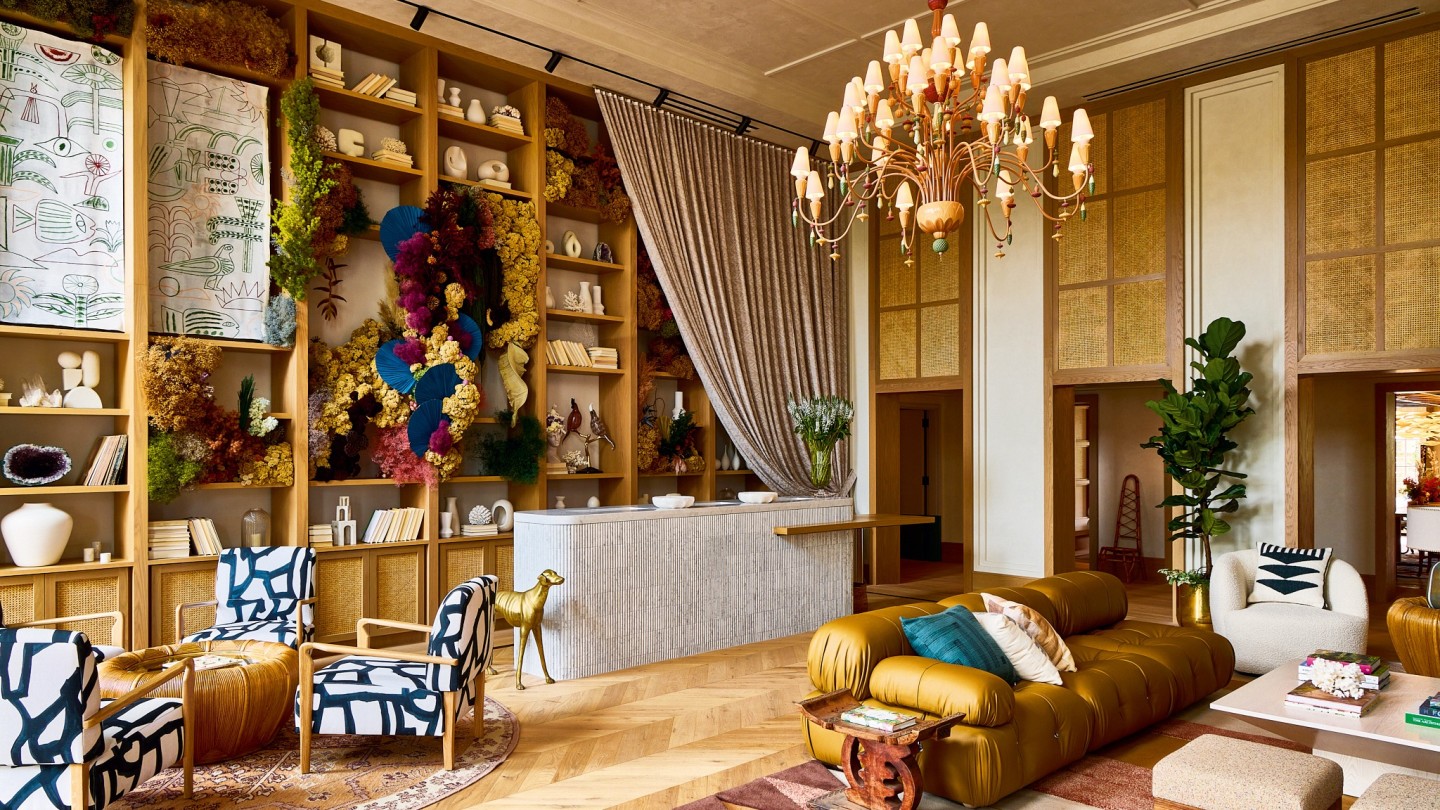
Roula Khalaf, Editor of the FT, selects her favourite stories in this weekly newsletter.
Low-key luxe on Long Island’s North Fork
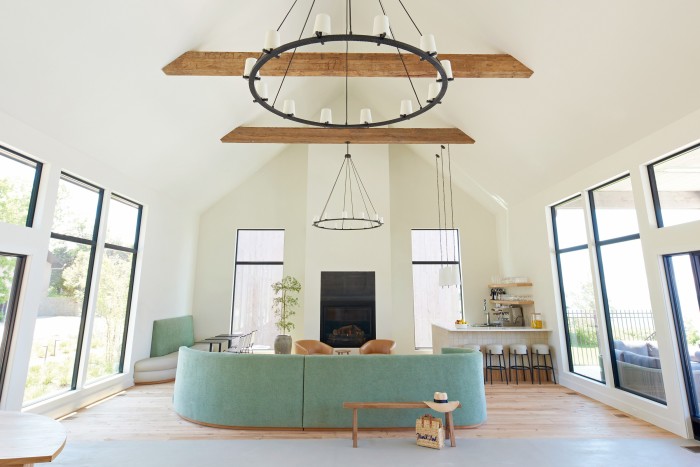
The North Fork of Long Island isn’t quite the anti-Hamptons – it’s too well-to-do for that. But it is its own quite chill version of far-East End living, with lower-key houses and residents alike, vineyards (more than 60) and farms, and plenty of traces of its past as a thriving 18th- and 19th-century whaling and trading centre. Hotel Moraine – a long-existent property that was recently acquired, expanded and shined up nicely by the owners of Croteaux, the award-winning vineyard in nearby Southold – is the place to come for those in search of clean, simple design.
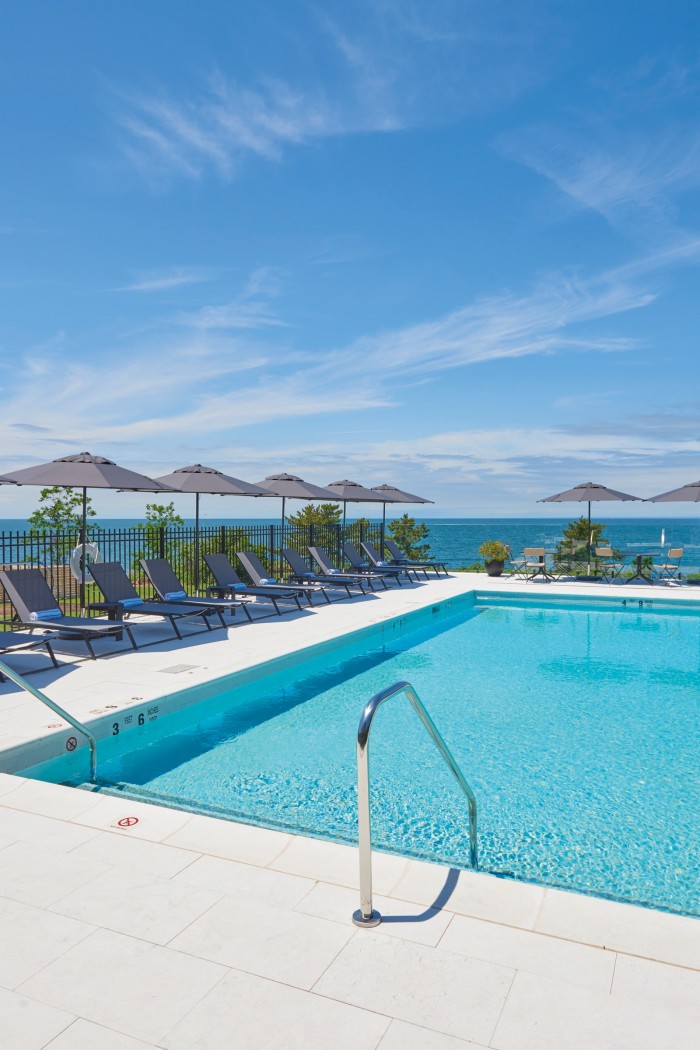
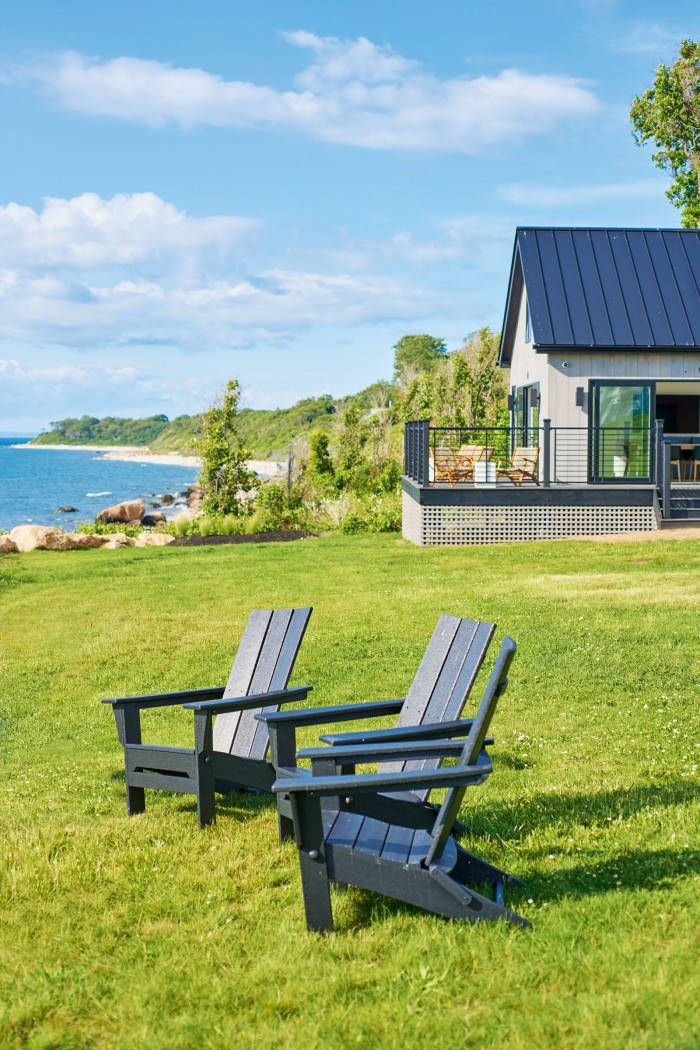
The rooms are all light timber and large sash windows, many giving onto Long Island Sound views (just below the bluff is 200ft of private beach; the paddle boards are complimentary). The hotel’s several acres of rolling green lawns are punctuated by a large saltwater pool and the barn-like lobby-reception addition, where guests can convene across several lounge areas – if it’s chilly, next to one of several fireplaces. The restaurant privileges summer comfort food, from mezze and lobster rolls to an elegant take on the banana split. hotelmoraine.com, from $350
Tent living in Treebones
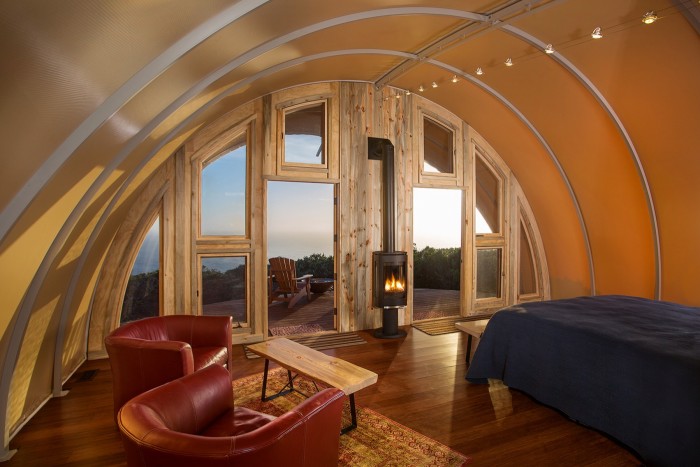
California’s Big Sur coast is long on stunning scenery but, unless you’re camping, fairly short on places to stay. The handful of good hotels here include The Post Ranch Inn, with its legendary food and views (and similarly breath-stealing rates). Much farther down the coast, a couple of miles from Limekiln State Park – excellent hiking here – is Treebones. When it opened back in 2004 it enjoyed near-instant success, thanks to a combination of sustainable operations and quirky design – both ends served by the light-footprint yurts that were the resort’s primary accommodations (though the owners have over the years augmented them with campsites and a groovy bring-your-own-sleeping-bags hut).
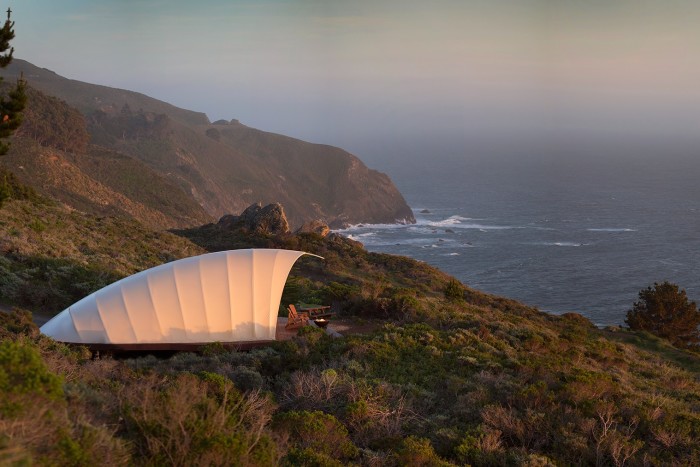
It also has a small collection of sleek and spacious autonomous tents; each with 50sq m of indoor space, bathed in sunlight filtering through its canvas dome, and 27sq m of outdoor and deck space. Each is independently solar-powered, and eminently private – but still within easy walking distance of Wild Coast Sushi, Treebones’ popular rustic omakase bar. treebonesresort.com; yurts $360, tents $950
Kitsch-free Waikiki
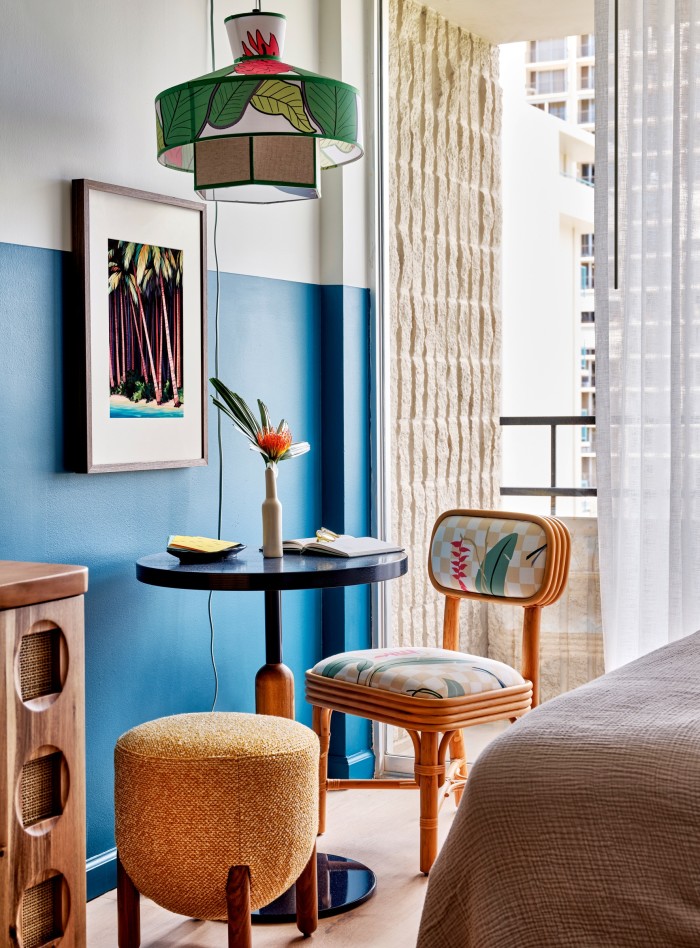
The wildfires that devastated areas of Maui in August were one of the worst natural disasters in Hawaii’s history, and the recovery will be daunting. You can help support the state’s recovery efforts by investing your holiday dollars in its other islands. Oahu, for instance – a forever beach destination with a surprisingly wide, varied tourism demographic, whose hotels range from the cheap and cheerful to the iconic (see: The Royal Hawaiian’s unmissable pink-palace façade). The new 228-room Wayfinder may lack a direct beachside location, but it makes up for it with great-looking design that was masterminded by local female-led architecture studio The Vanguard Theory, which is behind some of the town’s buzziest bars and restaurants.
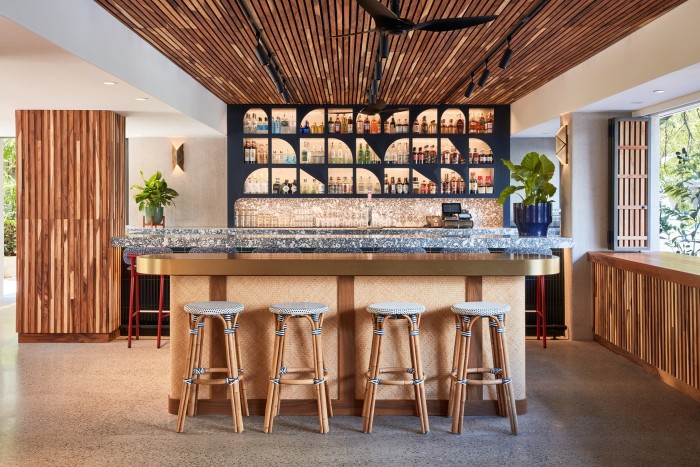
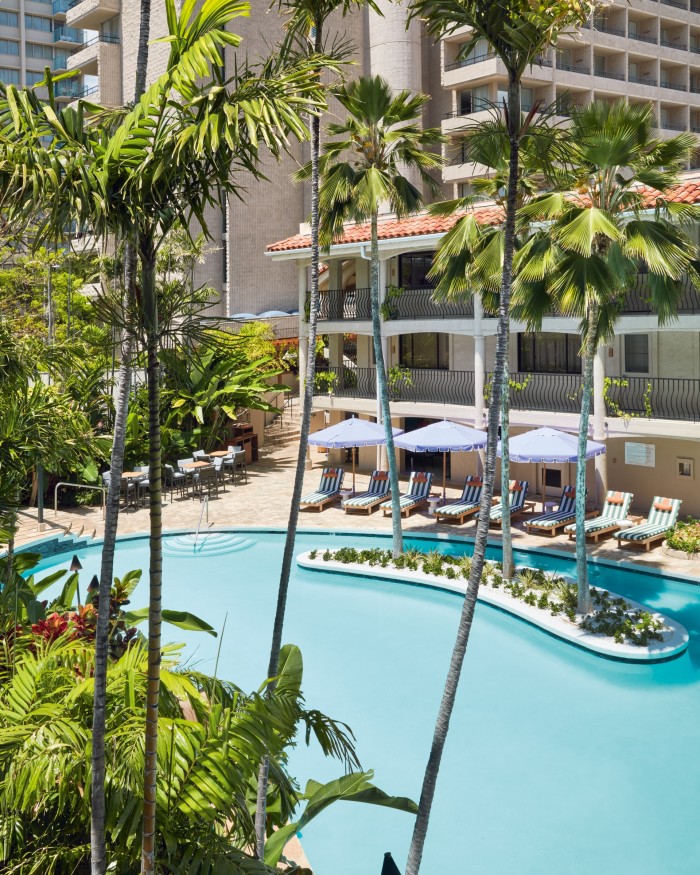
Tropical-fruit colours, woven grass and gleaming timber as well as unretiring geometric and hothouse-floral prints abound, softening the building’s brutalist lines with a bit of tiki-shack ebullience. There’s an all-day, old-school coffee shop, a cocktail lounge next to the 70ft saltwater “lagoon” pool, and an outpost of Redfish, the poke-crudo café concept created by Foodland, Hawaii’s homegrown, retro-cool supermarket chain (for the Wayfinder branch, they’ve crafted an exclusive menu). It’s cool without straying into kitsch, and excellent value for the money. wayfinderhotels.com, from $229
Remade in Martha’s Vineyard
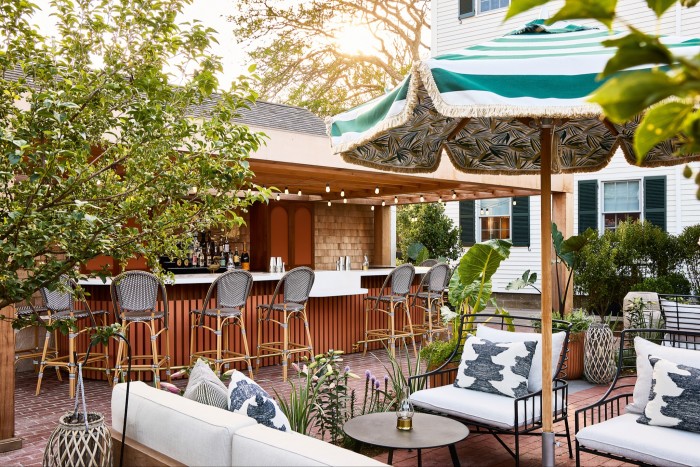
Kelley House has long been one of the oldest and best-loved establishments on Martha’s Vineyard. To undertake a renovation of it that introduces a fitness centre, pool with jacuzzi, sleek retail partners and decidedly Soho House overtones would seem to require a lot of guts – and capital, and commercial real-estate experience and hospitality-market nous. Enter Blue Flag Partners, the Boston-based development firm with multiple such projects to its name across Boston and Cape Cod.
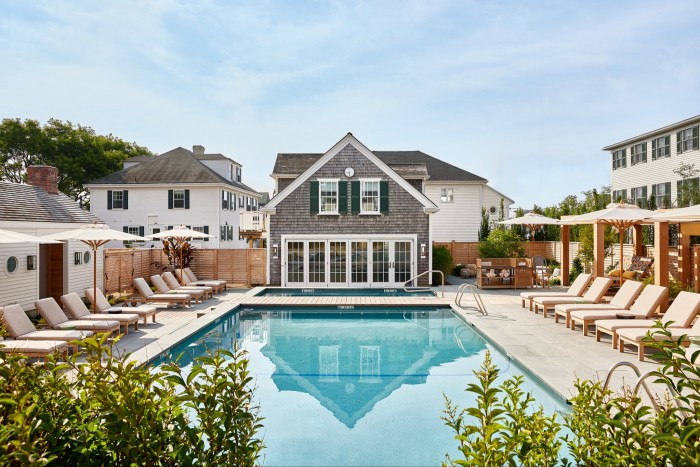
The result, now called Faraway Martha’s Vineyard, is gleaming, stylish, comfortable and worldly: Byredo amenities in the bathrooms, Bellino Italian linens on the beds, and craft cocktails and nigiri at Pelican Club, Faraway’s destination restaurant. The Edgartown and Chappaquiddick views – and, sagely, The Newes from America, the hotel’s Colonial pub – remain unchanged. farawaymarthasvineyard.com, from $950
Comments